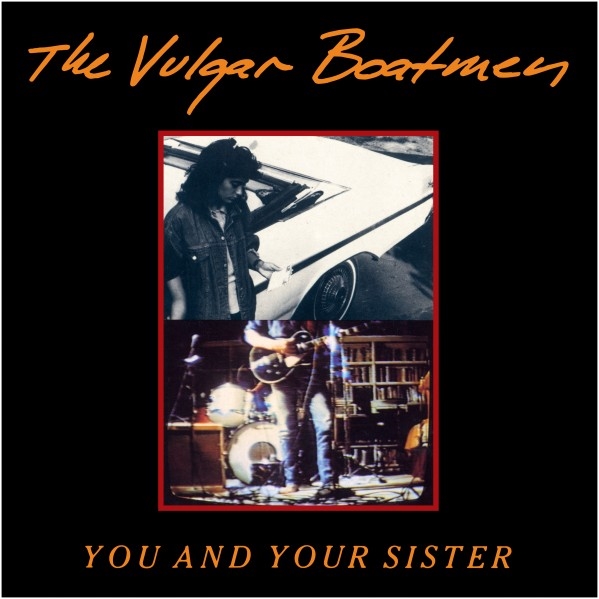
Vulgar Boatmen
You And Your Sister
Before there was widespread Internet, before YouTube or Pandora or BandSpace, one of two things could happen to a promising rock'n'roll band. A few got national notice if a big label picked them up. The rest, the vast majority, existed, all across the country, in their own private Idahos. In the mid-eighties, college radio stations began to grow in influence, and gradually some of these bands found ways to get the sound of their music directly to potential fans. A few -R.E.M., the Replacements, Hüsker Dü- grew in prominence (slowly). Many others made decent music, got some attention, toured the country a few times with the help of a network of fans' couches, and dropped back out of sight. This is the story of one of those bands. They made not just decent music but wonderful, bottomless, and transcendent music, and at least one great album, a re-release of which is in your hands. Back in the late eighties, new records were sent out to critics and radio people on plain cassette tapes or vinyl LPs a week or two before they were released. None of the myriad avenues available today to spread word of good new music were around, so the recipients actually had to put the cassette in a player or throw the LP on a turntable and listen to what they sounded like. And because it was an adventuresome time, and because some of the bands made difficult music -imagine hearing Pavement for the first time, say, not to mention Hüsker Dü- you often had to listen, really listen, several times or more, to find out what was going on, or, more prosaically, to make sure there wasn't something there you were missing. (It's not a precise analogy, but note how today you have to watch three or four episodes of some of the new high-end TV shows before you get what their creators are up to.) One of those records that were sent out at the time was 'You And Your Sister,' by the Vulgar Boatmen. In those years, remember, rap from acts as diverse as Public Enemy, De La Soul and the Beasties was rampant; Sonic Youth was at its height. By contrast, the sounds on 'You And Your Sister' were in a way vaguely folksy, in another way vaguely country, slightly tangential even to the sound of what came to be called alt-country, or Americana. Its sensibility wasn't quite rural, but it certainly wasn't urban_though elements of soul and gospel flecked the record as well. The sound in general was what you'd call "organic" - you could hear the guitars being strummed, the drums occasionally snapped. There was a resigned naturalness of the lead singer's voice, a plaintiveness in the melodies. And yet there was something droney, almost hypnotic, about a few of the songs, both musically and lyrically, a touch reminiscent of the electronic "shoegazer" bands of the time. (Extract from the article written by Bill Wyman, The New Yorker, February 4, 2016).